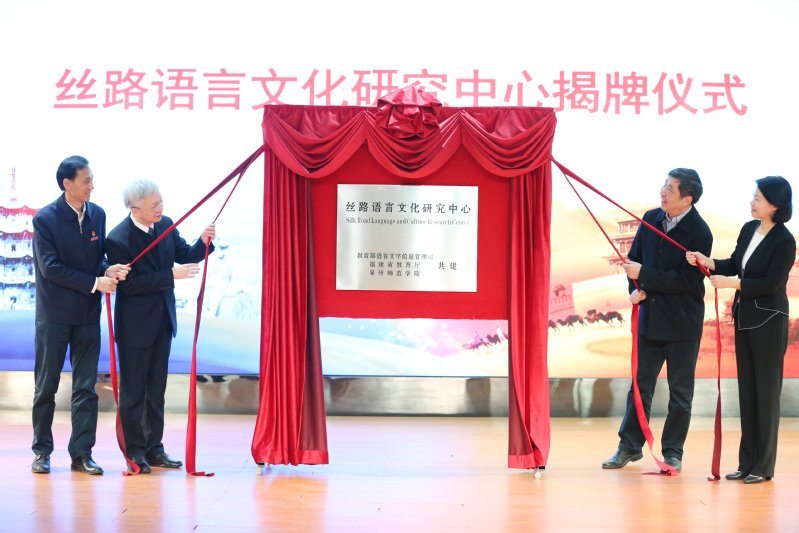
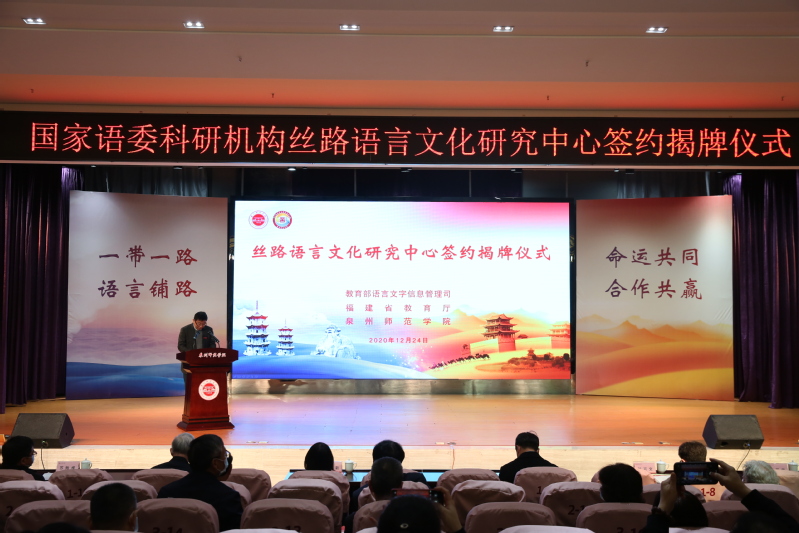
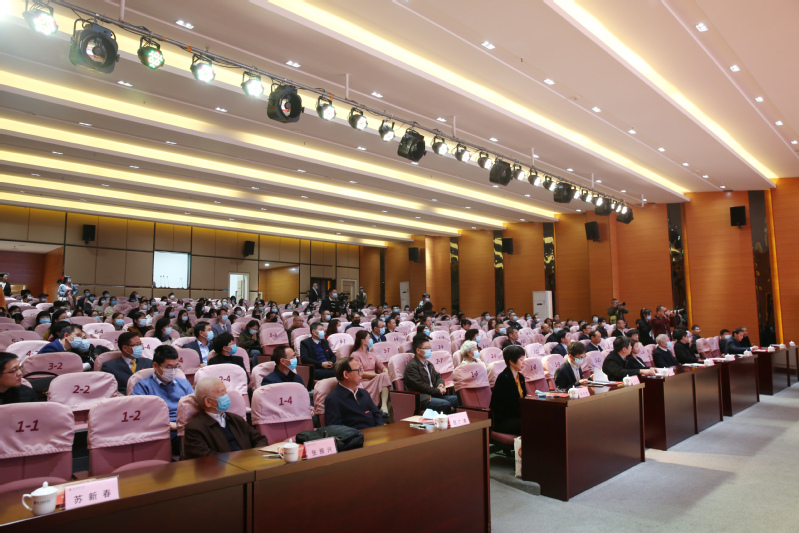
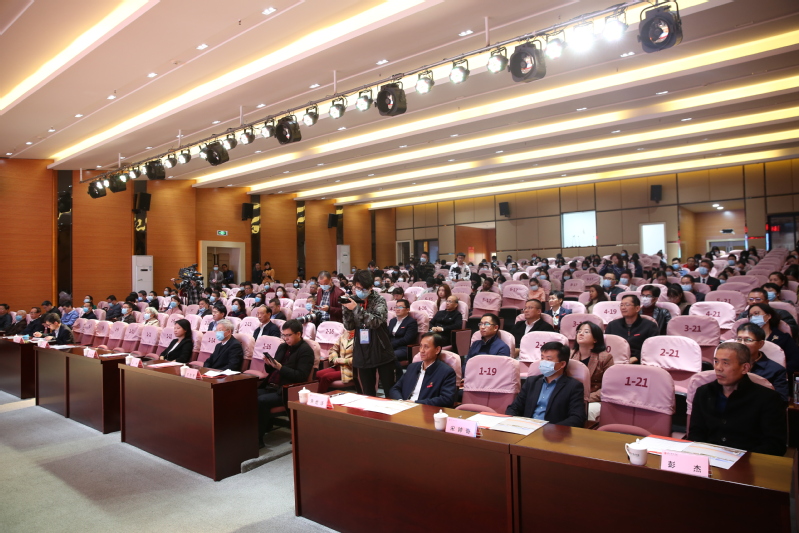
On the morning of December 24th, 2020, Quanzhou Normal University held the signing and inauguration ceremony for the Silk Road Language & Culture Research Center of the State Language Commission. Nearly 170 representatives of teachers and students attended the event, including Tian Lixin, Director of the Department of Language Information Management of the Ministry of Education, Li Xun, Deputy Director of the Education Department of Fujian Province, Lv Gang, Vice Mayor of the Quanzhou municipal government, Zhu Shize, Party Secretary of QNU, and Qu Guangqing, President of QNU.
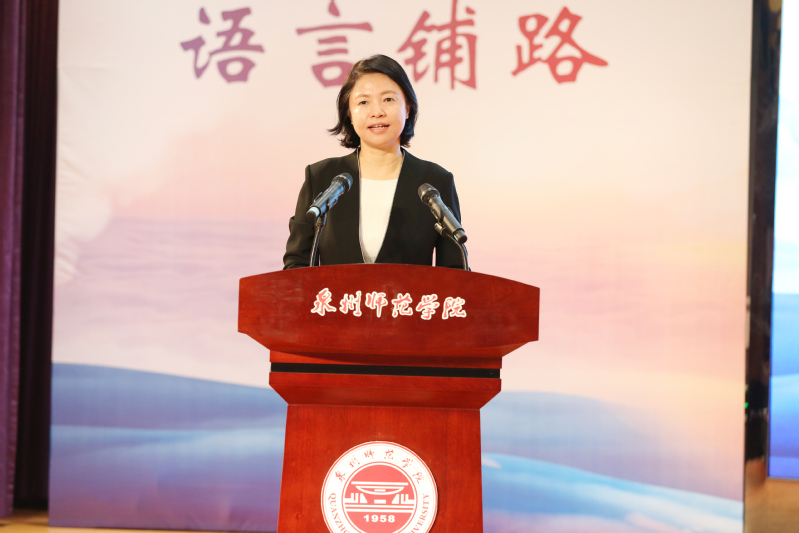
Tian Lixin gave a brief introduction to the Research Center of State Language Commission, pointing out that the Silk Road Language & Culture Research Center set in QNU has unique geographical & resource advantages and a solid research base. It is in line with the strategic needs of the national language development and the need to strengthen the international communication and dissemination of language and culture in the new era. She hoped that firstly, with firm national awareness, high starting point, high-level management and high-quality construction, the Center would be able to accurately analyze the language service requirements of countries involved in the Belt and Road Initiative, to give full play to the regional advantages, to strengthen the language and culture research, and to contribute to national development. Secondly, the Center would adhere to the problem-oriented approach, take the initiative to grasp the current status of the national language development, and then timely propose solutions to the most important issues in language service by carrying out active scientific researches. Thirdly, the Center would strive to build a high-level academic team with optimized structure, excellent business capacity and multiple academic backgrounds by focusing on the cultivation of academic leaders, young and middle-aged academic backbones and innovative talents.
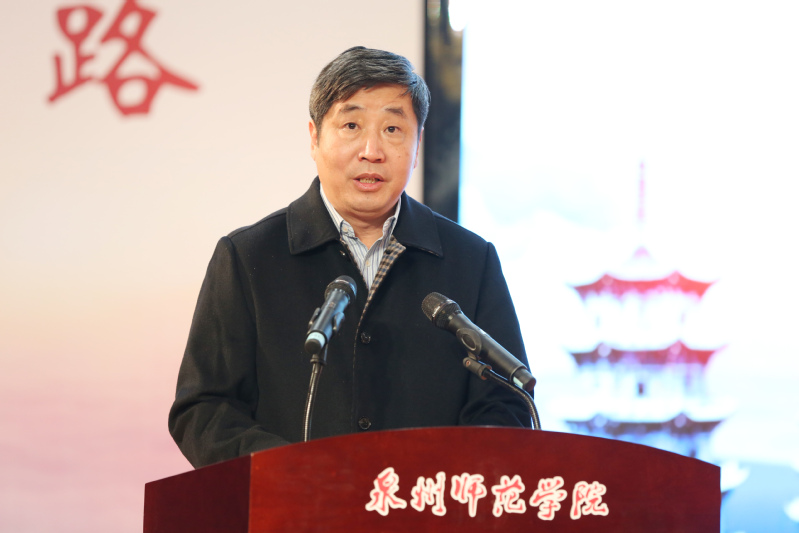
Li Xun pointed out that QNU had a deep accumulation and fruitful results after years of research on language resources of the Silk Road and the dialectal culture of Fujian and Taiwan. It had laid a solid foundation in regional dialect research and had made great achievements in promoting language development. He said that the Fujian Department of Education and the Provincial Language Commission would continue to guide the construction of the language center and provide strong support in terms of policy, resources, security, etc.
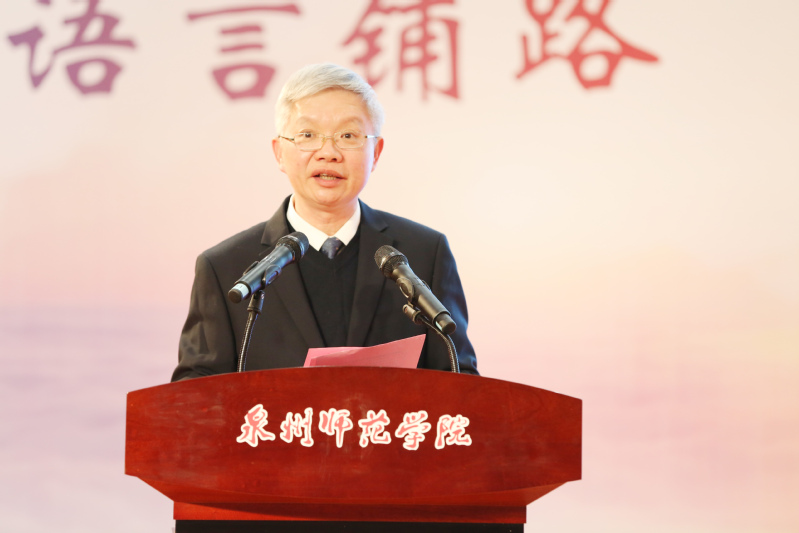
“Quazhou, a city registered in the first batch of the List of National Famous Historical and Cultural Cities in China and a key link for the Ancient Marine Silk Road, proceeds as the 21st Century Maritime Silk Road Leading Area,” said Lv Gang, Vice Mayor of Quanzhou city, “ and Quanzhou municipal government has been attaching priority to the development of Quanzhou Normal University to fully utilize the unique regional advantages and its role as one of the first batch of Fujian Province’s Double First-Class Universities and Exemplary Applied Colleges, so as to advance extensive research into languages, cultures of Southern Fujian and into those along the Silk Road and make greater contribution to studies on languages and cultures.” Lv Gang showed local government’s continuing support for the development of QNU and the establishment of Silk Road Language & Culture Research Center in this school.
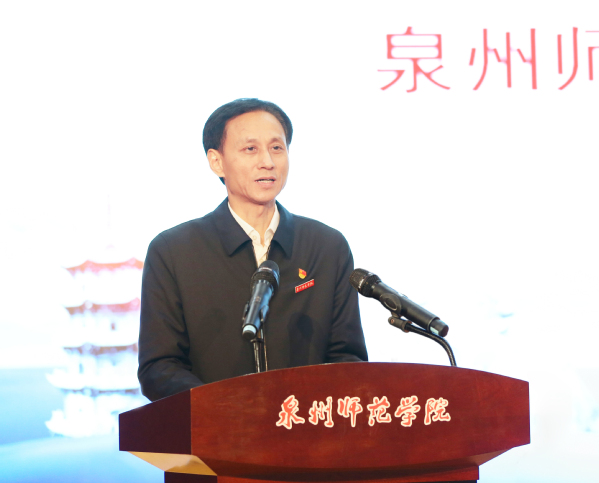
Zhu Shize, Party Secretary of QNU, said in his speech that in recent years the academy, with its development potential ranking the 10th among Fujian’s universities, had made great progress in education capability and quality, as is manifested in its being shortlisted among Fujian Province’s Double First-Class Universities, Exemplary Applied Colleges, Comprehensive Reform Pilots of All-Round Education, and Demonstration Colleges for Innovation, Entrepreneurship and Creation. QNU stuck to the path of “seeking support with service and fostering development with contribution”. Up to now, 39 ministerial and provincial-level research innovation platforms, including 10 cultural research platforms, have been established for the inheritance and innovation of splendid traditional culture. He pledged to build up the Silk Road Language & Culture Research Center into an integrated, open, professional institute for language investigation, researches, consultation, discipline development and communication, as well as a think tank and resource pool for Silk Road language and culture research and strategic decision making, so as to fulfill the purposes of “depicting Silk Road language condition, building featured language resource, providing consulting in macro decision-making, and serving the national language strategy”.
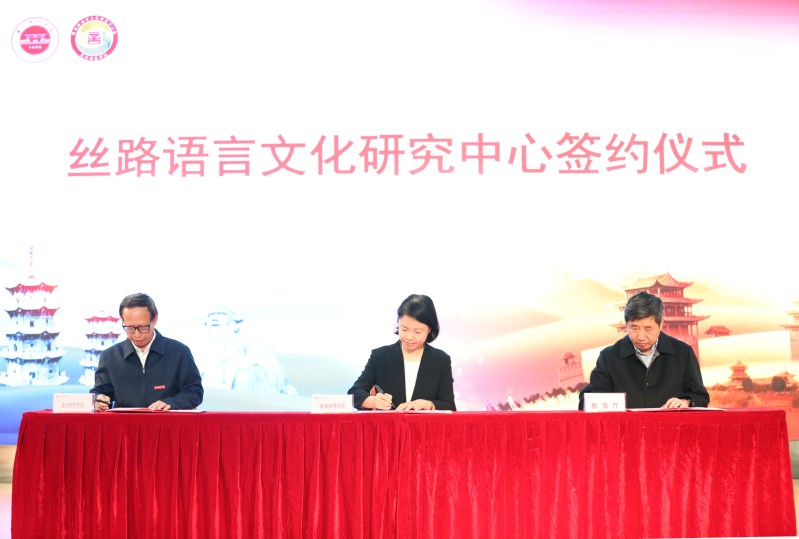
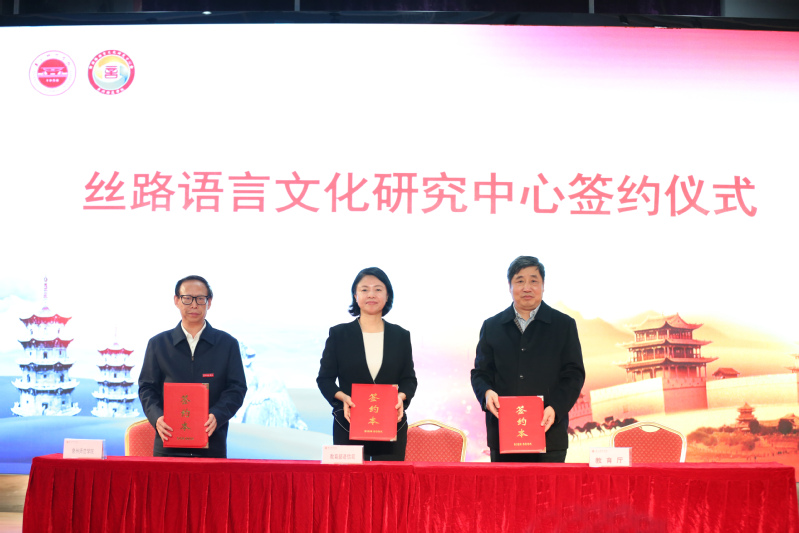
Tian Lixin, Li Xun, and Qu Guangqing signed the three-party joint development agreement on behalf of the Department of Language Information Management of the Ministry of Educatioin, Fujian Education Department, and Quanzhou Normal University respectively.
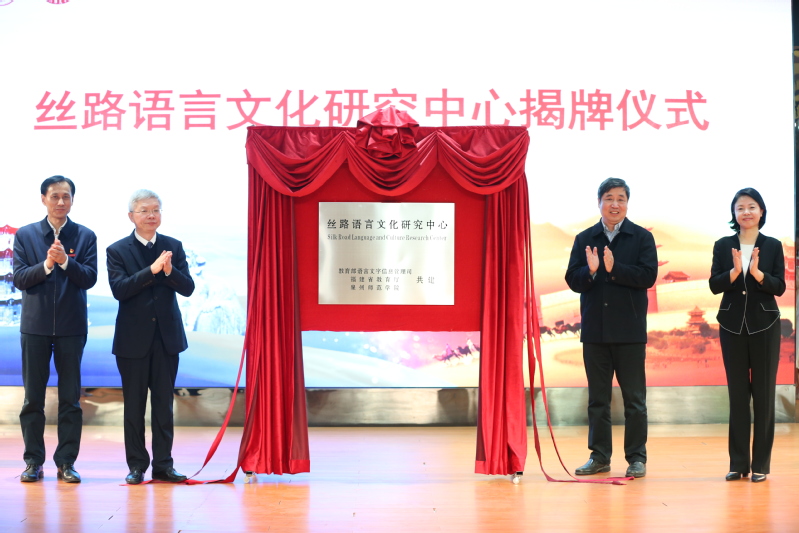
Tian Lixin, Li Xun, Lv Gang and Zhu Shize unveiled the plaque for the Silk Road Language & Culture Research Center
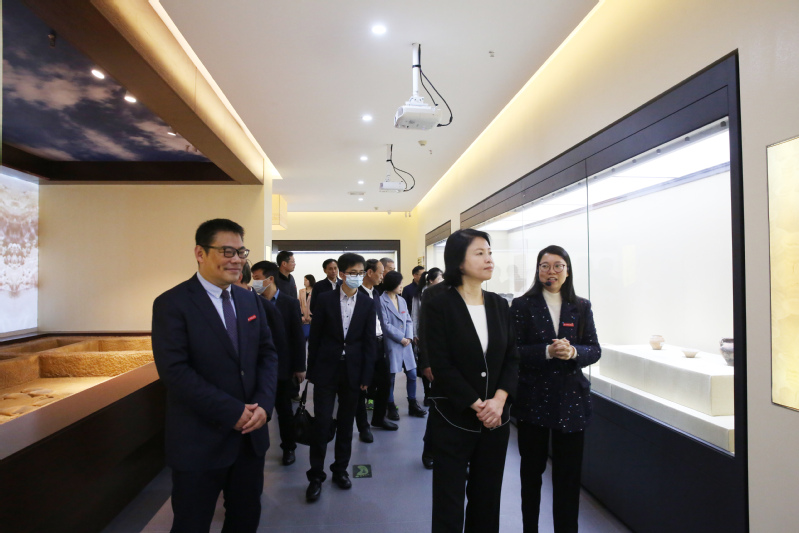
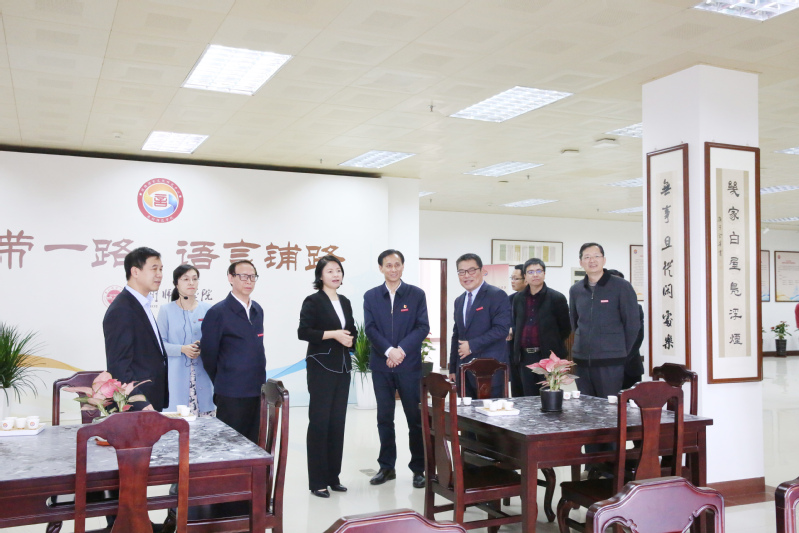
The Silk Road Language & Cultural Research Center is jointly established by the Department of Language Information Management of the Ministry of Education, Fujian Education Department, and Quanzhou Normal University. It is the 23rd scientific research institute set by State Language Commission in colleges and universities nationwide, which aims to further study and implement General Secretary Xi Jinping’s exposition on carrying on Chinese traditional culture, to implement in full the spirit of national and provincial education meetings and the National Language Meeting, to exploit the advantages of Quanzhou’s history and culture, and to promote the “Five Tasks”, i.e., exploring language relational research to promote disciplinary influence, enhancing the building of language resource to promote academic appreciation power, building high-end language think tank to promote academic service power, forging language disciplinary team to promote the academic developing power, and advancing cultural communication cooperation to promote the academic beaming power.
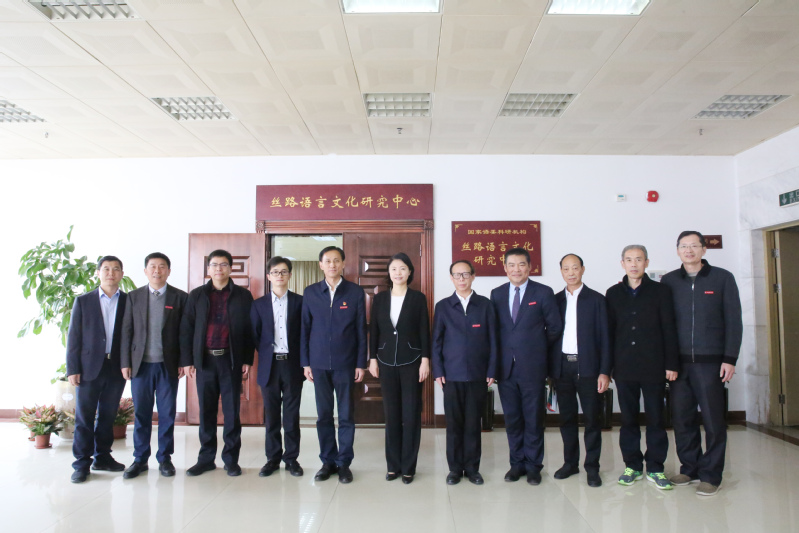
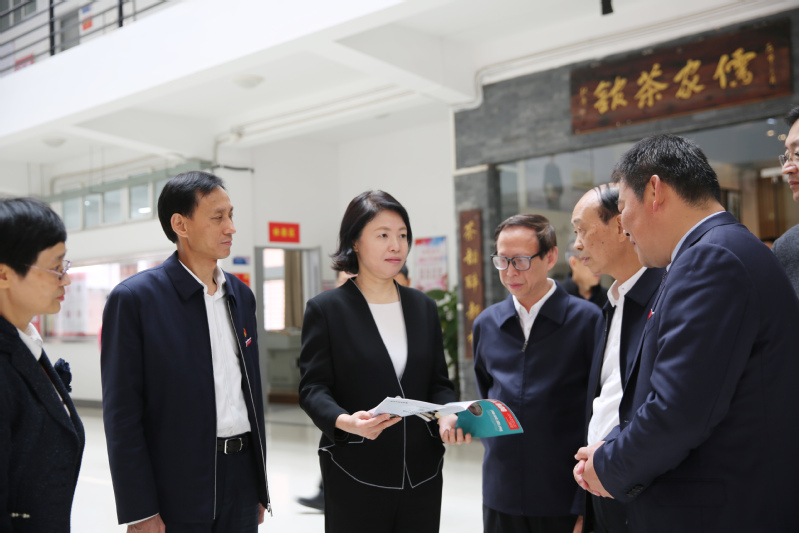
After its establishment, the Center will uphold the purposes of “depicting Silk Road language condition, building featured language resource, providing consulting in macro decision-making, and serving the national language strategy.” With the national opening-up strategy for the new era, the Center will focus on the countries and regions involved in the Belt and Road Initiative, and the Silk Road language strategy and policy, Silk Road language and economic & social development, Silk Road language resources investigation and database research, and serve the reform and development of national language course and the grand purpose of disseminating Chinese language and culture.
(School of Literature and Communication)

